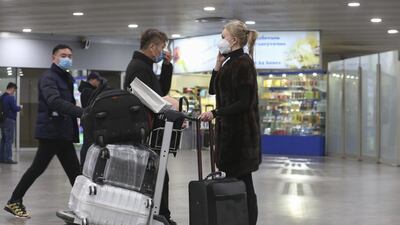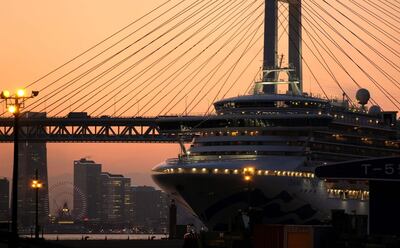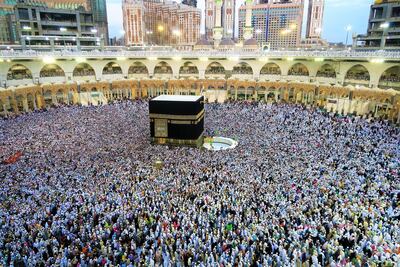As international efforts continue to try to contain the spread of coronavirus, thousands of travel plans have been affected. Travel bans, hotel closures and flight cancellations have seen holidays cancelled, while other travellers voluntarily want to postpone upcoming trips amid fears of the spreading Covid-19.
Here's what you need to know if you have travel planned. Follow general live updates here.
Will my flight be cancelled?
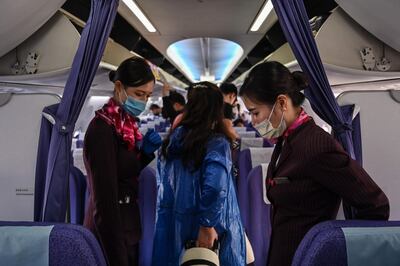
Globally, airlines have cut services to China. Hundreds of flights to other destinations where the virus is a threat have also been cancelled as the airline industry tries to stem the spread of the virus.
All flights from the UAE to China, other than to Beijing, are suspended. Flights are also temporarily suspended from Dubai International Airport to Bahrain.
Abu Dhabi's Etihad Airways has suspended flights to Hong Kong. This will remain in place until at least March 28.
British Airways has cancelled all flights to China, and are offering customers due to travel to Italy the chance to change travel plans free of charge.
Singapore Airlines and Cathay Pacific have also cut hundreds of flights.
Delta, the world's largest airline, has reduced services and scrapped change fees for customers on select flights. JetBlue has also suspended change and cancellation fees and American Airlines has cancelled flights to China and Hong Kong, and is offering waivers on change fees on select routes.
Qantas has cut flights from Australia to China, Hong Kong and Singapore. Travellers are advised to check with their airline for the latest flights updates ahead of travel and to find out more about refund and rebooking options.
Is cruising safe?
The Diamond Princess cruise ship is currently moored in Japan's Yokohama harbour after an outbreak of the virus spread throughout the vessel. At last count, there were 700 confirmed Covid-19 cases linked to the ship.
Despite this, the cruise industry has some of the most stringent health and safety controls and it's standard practice to isolate passengers when any on-board illness is identified.
The difficulty with coronavirus is that it can take up to 14 days for symptoms to develop after exposure and, in close quarters such as a cruise ship, the virus can spread more easily.
Mexican port authorities revoked permission for cruise ship MSC Meraviglia to disembark on the island of Cozumel this week due to coronavirus fears.
Cruise Lines International Association has said that most itineraries outside northern Asia are operating as normal, but travellers should check with their travel agent or cruise ship operator ahead of travel.
Are hotels closing?
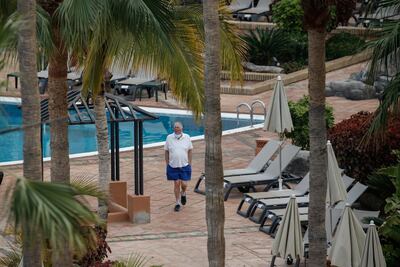
In China, several hotels have closed. Wyndham, the world's largest hotel brand, has closed more than 1,000 hotels and Hilton has temporarily shut more than 150 properties. Marriott has also closed several hotels and is waiving cancellation fees at other properties across China until at least March 15.
Other hotels where virus outbreaks have been identified have also been closed or partially closed, including one in Spain's Tenerife and another in Austria. If you're worried about a hotel you're planning on visiting, contact them for more information.
What about leisure attractions?

In countries with several cases of the coronavirus, many tourist attractions are closed and events are being cancelled.
In Italy, museums have closed their doors as part of a spate of emergency measures to contain the spread of the virus and authorities in the Veneto region cut short the annual Venice carnival. Milan’s Salone del Mobile, the largest furniture fair in the world, was slated to take place between April 21 and 26, it has now been postponed.
China's Forbidden City is closed to tourists and parts of the Great Wall of China are also off limits. Disneyland resorts have also closed in both Shanghai and Hong Kong. In Japan, where more than 140 cases have been confirmed, Tokyo Disneyland has banned guests to the magic kingdom from hugging cast members, who are all wearing face masks.
Fashion week in Seoul was cancelled and in Beijing and Shanghai, Fashion Weeks have been postponed.
Sporting events are also affected. A Six Nations Rugby Match between Ireland and Italy set to take place in Dublin has been cancelled and fears are rising that the disease may disrupt the opening of the Tokyo Olympic Games in July.
Travellers who were set to attend cancelled events and attractions should check with the event organisers or booking agent for details on refunds and reissued tickets
Will insurance cover cancellation?
Whether insurance providers will pay out on cancelled trips depends on several factors — check the wording of your policy for clarification.
According to Australian consumer advocacy agency Choice, less than half of insurance policies cover cancellation as a result of a health pandemic. Travellers who booked before the announcement of the epidemic – January 22 – may be able to obtain cancellation coverage. Insurance policies on bookings made after this date are unlikely to pay out.
Some policies allow travellers to buy coverage for cancellation under any circumstances, but this is often sold at a premium rate.
If booking now, research travel insurance cover carefully to ensure you're covered, and double check policy statements to find out where you stand if you've already booked.
How can I travel safely?
Older and at-risk travellers should avoid travelling to any countries where coronavirus is a threat. Other travellers should avoid all but essential travel to countries where the virus is spreading rapidly.
All travellers can help protect themselves against the virus by washing their hands. According to the UK's National Health Service, the first line of defense against contracting the virus is proper hand washing.
Other general advise is to keep your distance from people who are obviously sick.
Should I wear a face mask when travelling?
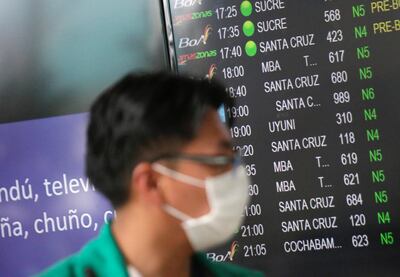
The only answer to this is: if you want to.
Several travellers are wearing face masks to help protect against the virus, to the extent that several mask manufacturers are struggling to cope with demand.
Official sources do not guarantee that wearing a face mask can help prevent infection. According to the US Centres for Disease Control and Prevention it: "does not recommend that people who are well wear a face mask to protect themselves from respiratory diseases, including COVID-19."
It states that masks should be used with people who have symptoms of the virus to help prevent the spread. It also states that face masks are "crucial for health workers and people who are taking care of someone in close settings (at home or in a health care facility)."
Travellers who do opt to wear masks, like Gwyneth Paltrow who posted a selfie on Instagram this week showing her masked up on a flight to Paris, should leave masks on their face for their entire journey to increase any level of effectiveness.
It's also important to wear a mask that fits properly to decrease the amount of times you touch your face to adjust it.
Even with a properly fitted mask, you may still be at risk of infection. That's because coronavirus particles are tiny — measuring 0.1 micron. Most face masks can only block particles 0.3 microns or bigger.
Perhaps that's why two travellers opted to wear more than just a mask on a recent flight. A Twitter user on a domestic flight across Australia shared a video showing the passengers wearing masks, gloves and plastic sheeting.
An easier way to reduce risk factor on a plane is to choose the safest seat. According to a study, the best option is a window seat.
Once you have your window seat, you should stay put. Visiting the bathroom, taking items from your overhead luggage and walking around the cabin could further increase your risk of infection say scientists from Atlanta's Emory University.
The 2018 study also said that the risk of direct transmission to passengers on flights is low, so long as travellers are "not seated in close proximity to an infectious passenger".
According to the World Health Organisation, contact with an infected person on an plane is defined as being seated within two rows of one another. However, researchers at The New England Journal of Medicine found that a three-row rule was more accurate.
In its 2003 study, conducted after the severe acute respiratory syndrome (Sars) outbreak, researchers found that transmission was related to the physical proximity to an infected person. They recorded illness in travellers seated within three rows of fellow passengers with the Sars infection. Almost one third of travellers sat within three rows of an infected person contracted the disease.
Travel bans
In the UAE, travel bans have been enforced for Emirati citizens travelling to Iran or Thailand. UAE citizens already in these countries have been advised to contact the embassy. The UAE embassy in Rome has also asked Emiratis to postpone travelling to Italy due to the coronavirus outbreak.
Emiratis with upcoming travel should register in the Twajudi system, a service provided the Ministry of Foreign Affairs and International Cooperation, to help in times of crisis and facilitate a return to the UAE.
Non-Emiratis can still travel to countries on the ban list, but all travellers should consider whether trips are essential.
Saudi Arabia has put a temporary halt on religious trips to the kingdom. The Saudi Ministry of Foreign Affairs announced on Twitter that it is banning visits to the country, including to Makkah and Madinah. It has also banned tourists visiting from countries where coronavirus is a threat.
Several countries around the world have warned against all non-essential travel to China as the virus continues to spread.
